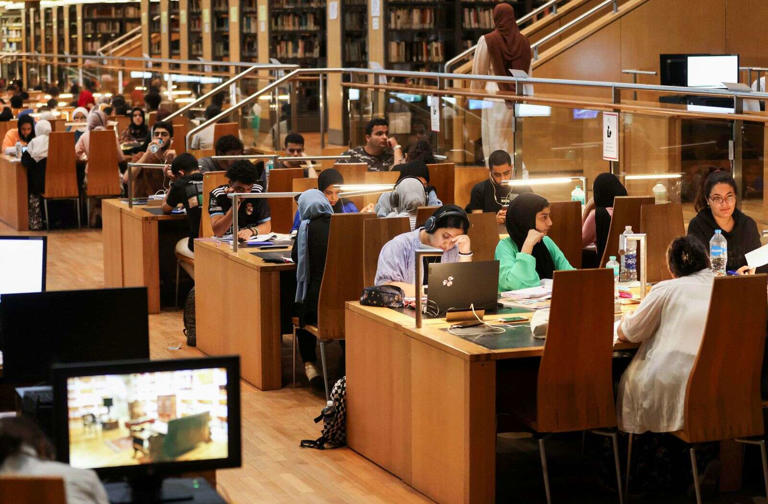In Egypt, a severe shortage of natural gas has led to rolling blackouts during a sweltering heatwave, disrupting the lives of many, especially students preparing for their critical high school exams.
At a press conference in late June, Prime Minister Mostafa Madbouly apologized for the ongoing power cuts across the nation, announcing that they would continue for three hours per day this week, but would be reduced to two hours starting the following week. In the meantime, students are struggling with the pressure of exams.
“The heat is unbearable,” Ibrahim Hussein, a high school student, tells Egyptian Streets. “It makes it more difficult to concentrate when the power is out for more than three hours.”
Hussein is one of 745,000 students who are studying for the high school, or thanaweya amma exams, which are critical for both students and parents, as the grades obtained in these exams determine university prospects. The exams are expected to run until 20 July.
The Problem with Natural Gas
Egypt relies heavily on natural gas for electricity generation. However, declining domestic gas production, fluctuating imports, and increased demand due to the heatwave have exacerbated the power cuts.
Madbouly announced that Egypt would need to import USD 1.18 billion (EGP 56 billion) worth of mazut fuel oil and natural gas to mitigate the power outages, promising that the government aims to halt power cuts by the third week of July.
He explained that the current crisis was caused by a 12-hour stoppage at one of the natural gas stations in “a neighboring supply country.” Madbouly highlighted that Egypt is connected to this “neighboring supply country” as part of a regional energy network.
According to Madbouly, Egypt liquefies and exports surplus gas through this network during winter and imports it during summer. He noted that in the past three to four years, Egypt has stopped exporting natural gas during the summer and has instead been importing a significant amount to meet domestic needs.
Students Resort to Alternatives
The pressure is immense, and with power cuts making home study challenging, alternative study venues have become vital.
Shahd Mohammed, another student, has resorted to going to a nearby café, which runs on a private generator for electricity.
“I would rather stay at home, but, when the power is out after 7 pm, I have no other option but to go outside to be able to revise before exams,” she says.
Various community venues such as churches, mosques, and libraries have extended a helping hand, providing study spaces powered by their generators. These venues also include sports centers and wedding halls, offering a refuge for students grappling with daily power cuts.
One notable initiative is by the Bibliotheca Alexandrina on the Mediterranean coast, which announced that students could use its 2,000-seat reading hall free of charge outside its regular hours. Hundreds of students, eager to escape the oppressive heat, have lined up since June to take advantage of the library’s air-conditioned facilities.
“It feels suffocating at times, and it’s really taking a toll on our mental health at this difficult time,” Hussein says. “I hope the situation ends soon.”







Comments (0)